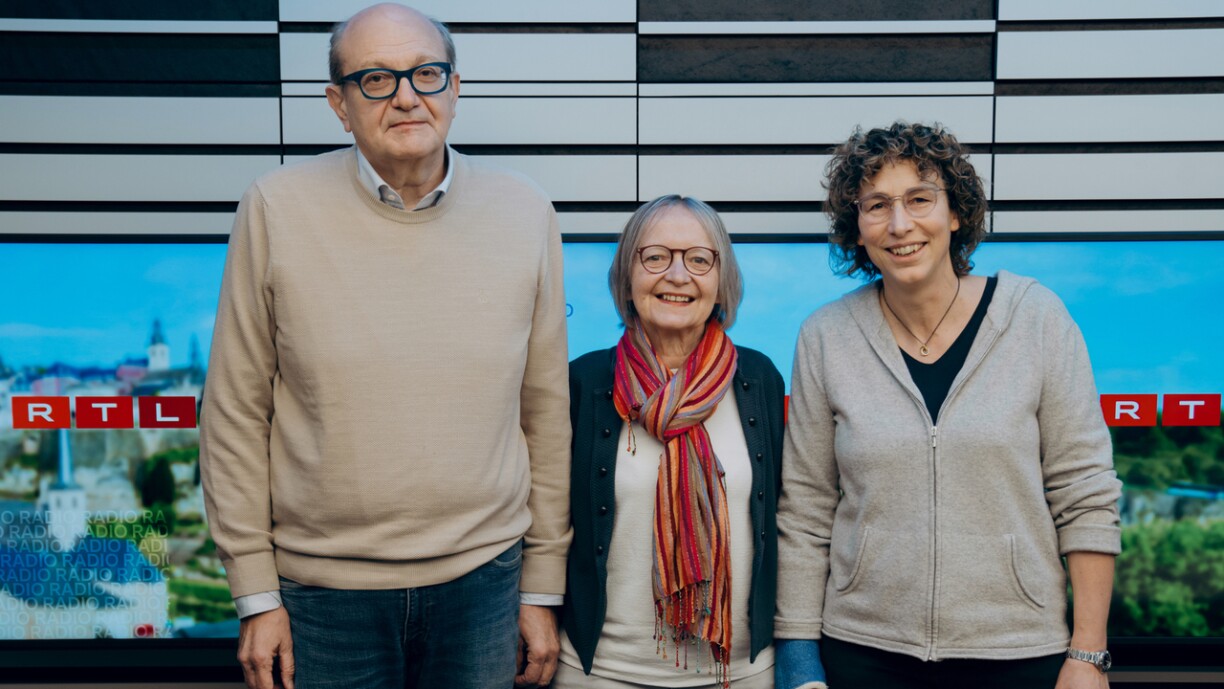
To mark the start of the All Saints’ holiday, our colleagues from RTL Radio convened a roundtable discussion focused on the theme of “end-of-life decisions” on Saturday.
The panel featured three medical professionals: Dr Monique Reiff, a neurologist at the Centre Hospitalier de Luxembourg (CHL); Dr Luciane Pauly, a general practitioner associated with the Omega House of Omega 90, an organisation offering support to individuals nearing the end of their lives; and Dr Romain Stein, a general practitioner and a member of the association Mäi Wëlle, mäi Wee (“My Will, My Path”), an advocacy group dedicated to the right to a dignified end of life.
The prevalence of euthanasia procedures in Luxembourg remains relatively low, particularly when compared to other countries. Dr Romain Stein highlighted that in 2022, 28 euthanasia procedures were carried out in the nation, accounting for just 0.6% of total deaths. By contrast, Belgium reports a rate of 2%, and the Netherlands 4%.
Dr Monique Reiff suggested that this disparity could be attributed to the enduring societal reluctance to openly discuss the topic, which has fostered a scarcity of doctors willing to provide euthanasia services, a challenge shared with other countries. However, she noted a significant shift in recent years, with younger physicians displaying greater openness to the subject.
The primary demographic seeking euthanasia comprises individuals with cancer, followed by those afflicted with neurological conditions. The reluctance to discuss death, according to Dr Luciane Pauly, emanates from the fear of the unknown, leading people to suppress this vital conversation. Dr Pauly emphasised the importance of such discussions in order to prepare oneself and one’s loved ones for this important life event.
Preparation for end-of-life decisions can take the form of a living will or an end-of-life disposition, as detailed by Dr Stein. A living will enables patients to articulate their preferences concerning medical interventions when facing terminal illness, including decisions regarding artificial nutrition or intubation.
Meanwhile, an end-of-life disposition allows patients to declare their stance on euthanasia. This legal document assumes particular significance in cases where a patient may be rendered brain-dead in an accident, sustained by life support with no prospects of recovery. In such situations, if the patient has formalised an end-of-life disposition, healthcare providers are authorised to discontinue life-sustaining treatments.
To be eligible for euthanasia, certain clear criteria must be met, as explained by neurologist Dr Reiff. Prospective candidates must be over 18 years of age and afflicted with an incurable, irreversible disease. Dr Reiff suggested that it might be prudent to enquire about a patient’s end-of-life disposition when they are admitted to a hospital, or at least address the subject as a part of the medical discourse.
One notable aspect of euthanasia in Luxembourg is the absence of a designated fee for the procedure, as it does not fall within the existing nomenclature. The process demands considerable time and dedication from healthcare professionals, often verging into voluntary work due to the absence of financial remuneration.
Though discussing finances in this context is undoubtedly challenging, Dr Reiff raised concerns about the financial burden on healthcare providers, highlighting a potential deficit. Advocates for an improved fee schedule, such as “My Will, My Path,” have been pressing for reforms in this regard. Dr Stein, who supports this initiative, has also voiced the need for a dedicated end-of-life home.
Beyond the procedural aspects, it is important to recognise the significance of addressing the emotional component of end-of-life care. Dr Pauly underscored the importance of dealing with the grieving process with empathy and sensitivity, emphasising that mourning is an essential facet of the broader conversation.
Regarding the age limit for euthanasia in Luxembourg, the requirement stipulates that individuals must be at least 18 years old to qualify. However, the question arises: Should age serve as a limiting factor in accessing euthanasia?
Dr Reiff questions the necessity of subjecting younger individuals to further suffering, contending that age should not be a determining factor, echoing the approach in Belgium where age restrictions are absent.
Dr Stein also supports the idea, stressing that assessments are already made on a case-by-case basis. He pointed out that even infants can be born with incurable diseases, and they too would deserve a compassionate approach to their suffering.
In recent years, there has been a growing demand for euthanasia procedures to be extended to psychiatric patients. This trend has there sparked the question: should euthanasia be permitted in such cases?
While the legal framework allows for it, in practice, this avenue has never been pursued in Luxembourg. The primary reason being that, by definition, psychiatric patients do not have an incurable disease. Nonetheless, mental health patients also grapple with substantial suffering, as highlighted by Dr Reiff. The suicide rate among this demographic is notably high, prompting concern over individuals resorting to self-harm when alternative options might exist, as stated by the neurologist.
The prospect of individuals enduring multiple suicide attempts while searching for a solution to their anguish is disheartening, according to Dr Pauly. The GP affiliated with Omega 90 argued that this situation underscores the imperative to afford people the opportunity to approach their end-of-life choices with the utmost dignity and respect.
It should be noted that Dr Bernard Thill, physician and author of the book Das Warschauer Konzert (“The Warsaw Concert”) about death, was also invited to participate in this discussion. However, he had to cancel his appearance at short notice.